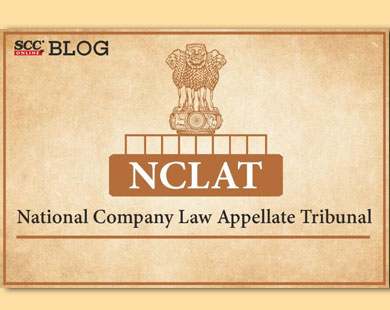National Company Law Appellate Tribunal, New Delhi: A bench consisting of Anant Bijay Singh, J. and Shreesha Merla* (Technical Member) held that the Tribunal does not have residual equity-based jurisdiction to direct modifications of claims once the Resolution plan is approved.
Factual Matrix
In the instant case, the appellants are a group of small-scale firms who supplied services to the Corporate Debtor. Corporate Insolvency Resolution Process (CIRP) was initiated against the Corporate Debtor and in their capacity as ‘Operational Creditors' claims were submitted by the Appellants. The CoC approved the Resolution Plan of one ‘One City Infrastructure Pvt. Ltd.' The Adjudicating Authority approved the Resolution Plan without conducting any hearing of the objections raised by the appellants. Aggrieved by the impugned order of Adjudicating Authority, all the appeals were preferred by the appellants/creditors challenging the same before this Tribunal on the ground that the creditors had not received fair and equitable treatment under the Resolution Plan.
Moot Point
Whether the Tribunal has equity-based jurisdiction once the Resolution Plan is approved and was there discrimination between the classes of Creditors?
Assessment
The Tribunal observed that there is no procedural irregularity in the order passed by the Adjudicating Authority as the order had already pronounced that the application would be allowed, and the Resolution Plan would be approved.
The Tribunal observed that the appellants could not have raised the grounds of natural justice at this stage as they were only allowed to file an appeal on merits.
The Tribunal relied on Committee of Creditors of Essar Steel Ltd. v. Satish Kumar Gupta, (2020) 8 SCC 531, where it was held that “the equity principle cannot be stretched to treating unequal equally as they will destroy the very objective of the Code while the Adjudicating Authority cannot interfere on merits with the commercial decision taken by the CoC, the limited Judicial Review available is to see that the CoC has taken into account the fact that the ‘Corporate Debtor needs to be kept going as a going concern during the Insolvency Resolution Process, that it needs to ‘maximise the value of its assets' and the interest of all stakeholders'.”
The Tribunal opined that if the provisions and regulations of IBC have been met, it is the Commercial Wisdom of the CoC which is to negotiate and accept the Resolution Plan, which may involve differential payments to different classes of Creditor.
The Tribunal observed that GAMDA was in communication with the Resolution Professional and the statutory dues owed to GMADA cannot be faulted. Moreover, the differential treatment of the dues of the Operational Creditors is solely based on the commercial decision of the CoC and the same cannot be construed as material irregularity.
The Tribunal opined that once the Resolution Plan is approved, the Adjudicating Authority has a very limited jurisdiction except in determining whether the requirements which are specified in S. 30(2) have been fulfilled or not and cannot interfere in the merits of the ‘Business Decision of the CoC'.
Decision
Upholding the impugned order passed by the Adjudicating Authority, the Tribunal did not consider this case as a fit to set the clock back and held that the Resolution Plan was approved by the CoC way back in 2019 and the Adjudicating Authority has approved the Plan after a period of two years and the Plan has already been implemented.
[Paramvir Singh Tiwana v. Puma Realtors (P) Ltd., 2022 SCC OnLine NCLAT 1605, decided on 22-12-2022]
*Judgment by Ms. Shreesha Merla
Advocates who appeared in this case :
Mr. Bilal Ali and Mr. Adarsh Kumar Gupta, Counsel for the Appellants;
Mr. Krishnendu Datta (Senior Advocate), Mr. Adhish Sharma, Mr. Nitin Pandey, Ms. Varsha Himat Singh and Mr. Akash Kattar, Counsel for the Respondent No. 2;
Mr. Virendar Ganda (Senior Advocate), Mr. Vivek Sinha, Mr. Vivek Malik and Ms. Akanksha, Counsel for Axis Finance;
Mr. Abhijeet Sinha, Mr. Kushank Sindhu, Ms. Gazal Ghai and Mr. Anmol Singh, Counsel for Erstwhile Resolution Professional;
Ms. Akanksha Mathur & Ms. Sreemantini Mukherjee, Counsel for the Respondent.
*Ritu Singh, Editorial Assistant has put this report together.






